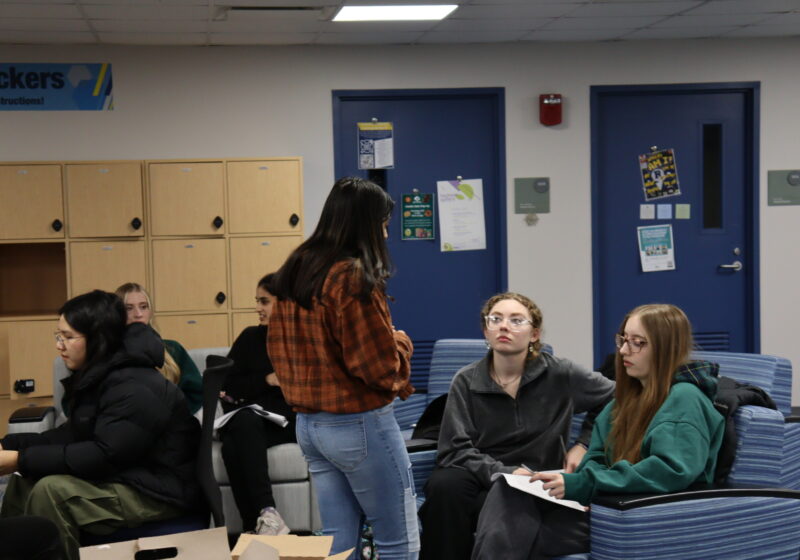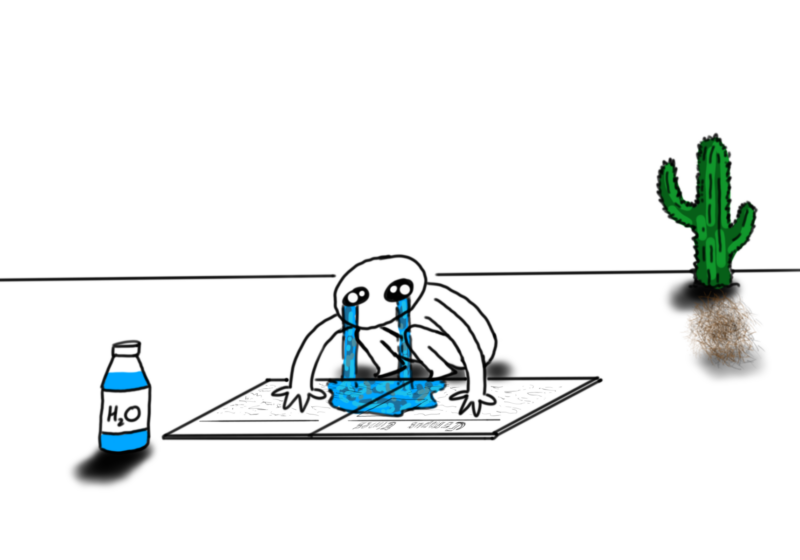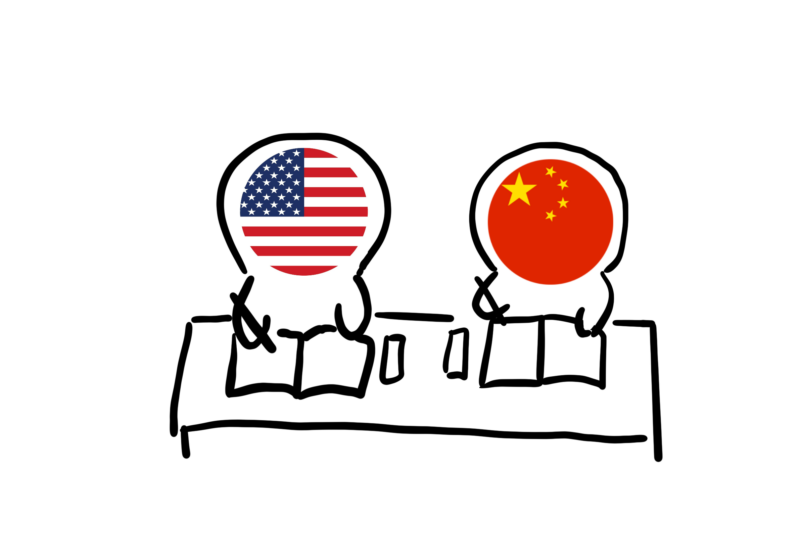Junior Atreyee Ghosh, biochemistry and psychology major, first heard about the Brain Exercise Initiative (BEI) through a friend who is the president of the UC Irvine chapter of the organization. Since her freshman year, Ghosh has been volunteering with senior citizens when she travels home to Georgia. After realizing she wanted to continue this work at UR, she started working to found a BEI chapter in Rochester.
Alzheimer’s is a degenerative neurological disease that affects 55 million people worldwide and is the leading cause of dementia. BEI is an organization that sends volunteers to work with elderly individuals with Alzheimer’s to help them complete packets containing sets of brain exercises. These packets work to reduce the negative effects of the disease and keep the brain engaged.
The first section involves writing, with basic questions raised by Ghosh, like “who’s on the dollar bill”. After that is a math section with simple multiplication, addition, and subtraction problems that are meant to be completed as quickly as possible. Finally, the packet concludes with a reading section comprised of a short passage that the elderly person can discuss with the volunteer.
“It’s us walking them through these packets, but at the same time, trying to build a relationship with them,” Ghosh explained. “We want to know their names and their stories, and it’s not just about ‘walk through this exercise and we’re done.’”
UR’s BEI chapter started recruiting volunteers at the start of the 2025 spring semester, and is beginning volunteering efforts. However, Ghosh started the process of getting BEI to UR much earlier than this, interviewing for a presidency with BEI over the summer and attending a BEI conference with junior Nicole Wang, who is now the chapter’s Vice President.
The research behind BEI also had to be validated by Dr. O’Banion, a doctor and joint professor in the Department of Neurology at URMC, before the chapter could be made official. The research showed that these exercises can help people with Alzheimer’s. After consistently completing the exercises “their cognitive ability really improved,” Ghosh said. These exercises are used at more than 1400 care homes in Japan. For more information about BEI’s mission and the research behind it see BEI’s website.
Before BEI’s Outreach Coordinator, Ali Al Qazzaz, decided to join the group, he went and read the research for himself. “What I got out of the research is that it really depends on the individual, what they get out of this,” Al Qazzaz said. “But there are – as it shows – really amazing possibilities that can come out of this. Despite all the nitty gritty details about how this shapes our brain and what parts of our brains are activated, it’s incredibly important for seniors in general to have more connection in their lives.” Al Qazzaz, like Ghosh, hopes for BEI to grow to involve more than just the exercises.
Al Qazzaz, a junior majoring in microbiology, was particularly interested in joining BEI. He held a prior academic interest in Alzheimer’s and hopes to connect this research to Alzheimer’s and the concentration of cases near the Earth’s equator.
“I’m pre-med and I’m a prospective physician and I really wanted to still be able to work more directly with those with Alzheimer’s disease,” Al Qazzaz said. “So I’m kind of living the best of both worlds, being able to study it as well as to interact with and learn from those that have the disease.”
Although the group hasn’t begun volunteering yet, they’ve been preparing. Before spring break, the group met to role-play with each other to practice working with the packets. Volunteers learn how to deal with potential hiccups — for instance, if individuals are struggling with the activities being trained to handle any type of situation.
BEI was also one of the co-sponsors of Family Science Day, where they played brain memory games with local elementary and middle school students and their families. “It was a really good time. The kids seemed to have a lot of fun,” said Ghosh. “Everyone learned a little bit about how your brain and how your memory work.”
The group’s E-Board will be going to St. Ann’s Community on Sunday, April 6 as a trial run for volunteering. Recently, the volunteer coordinator from St. Ann’s Community came to campus for an orientation, where Ghosh said the group learned about requirements for volunteers and what volunteering safely looks like. BEI’s long-term mission is to bring more student volunteers from UR to work with elders with Alzheimer’s disease.
The BEI chapter is in conversation with Brookdale Senior Living and hopes to send volunteers there too. To stay updated with the organization’s volunteering opportunities, you can follow them on their Instagram page @rochester.bei.






